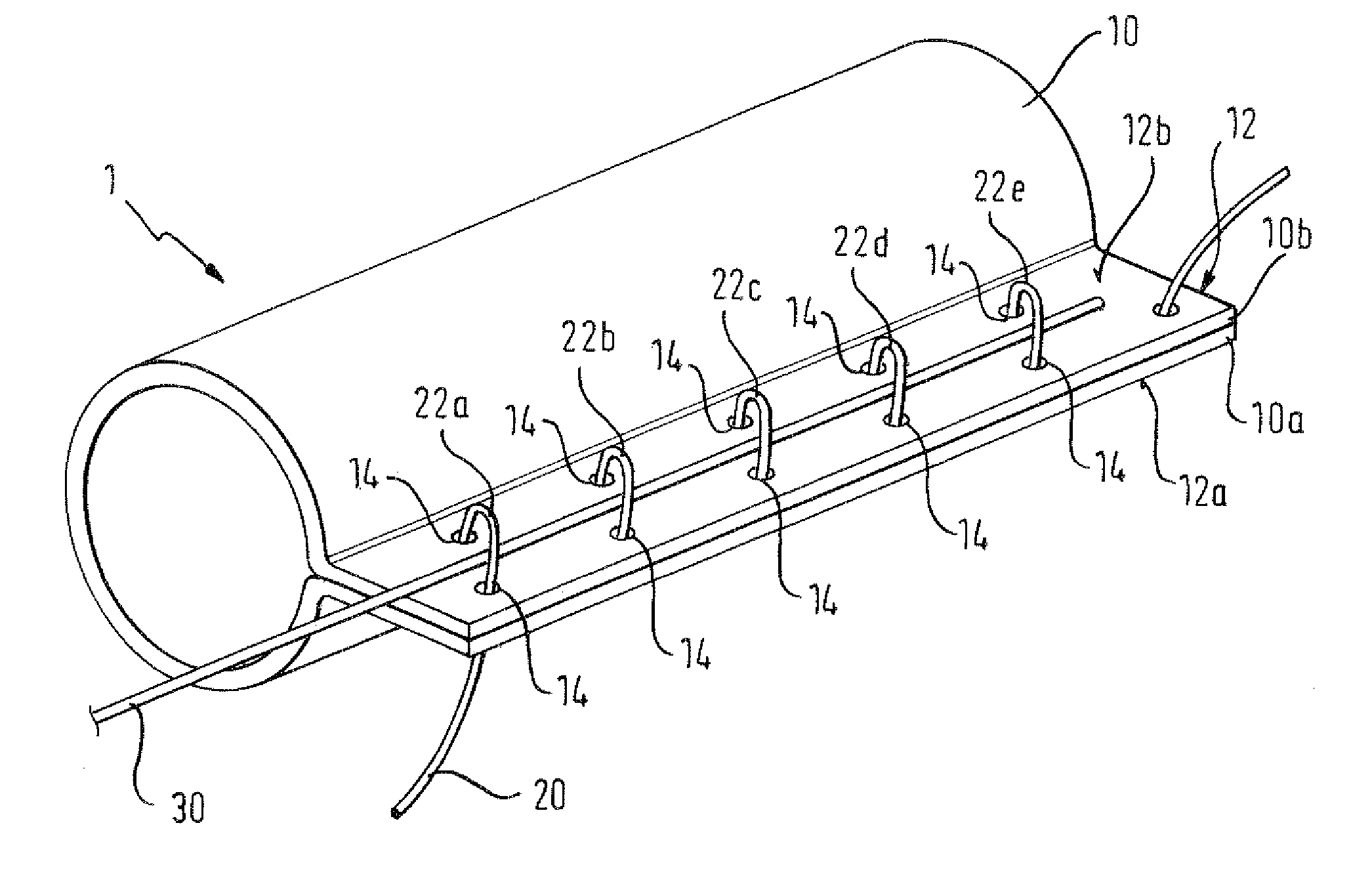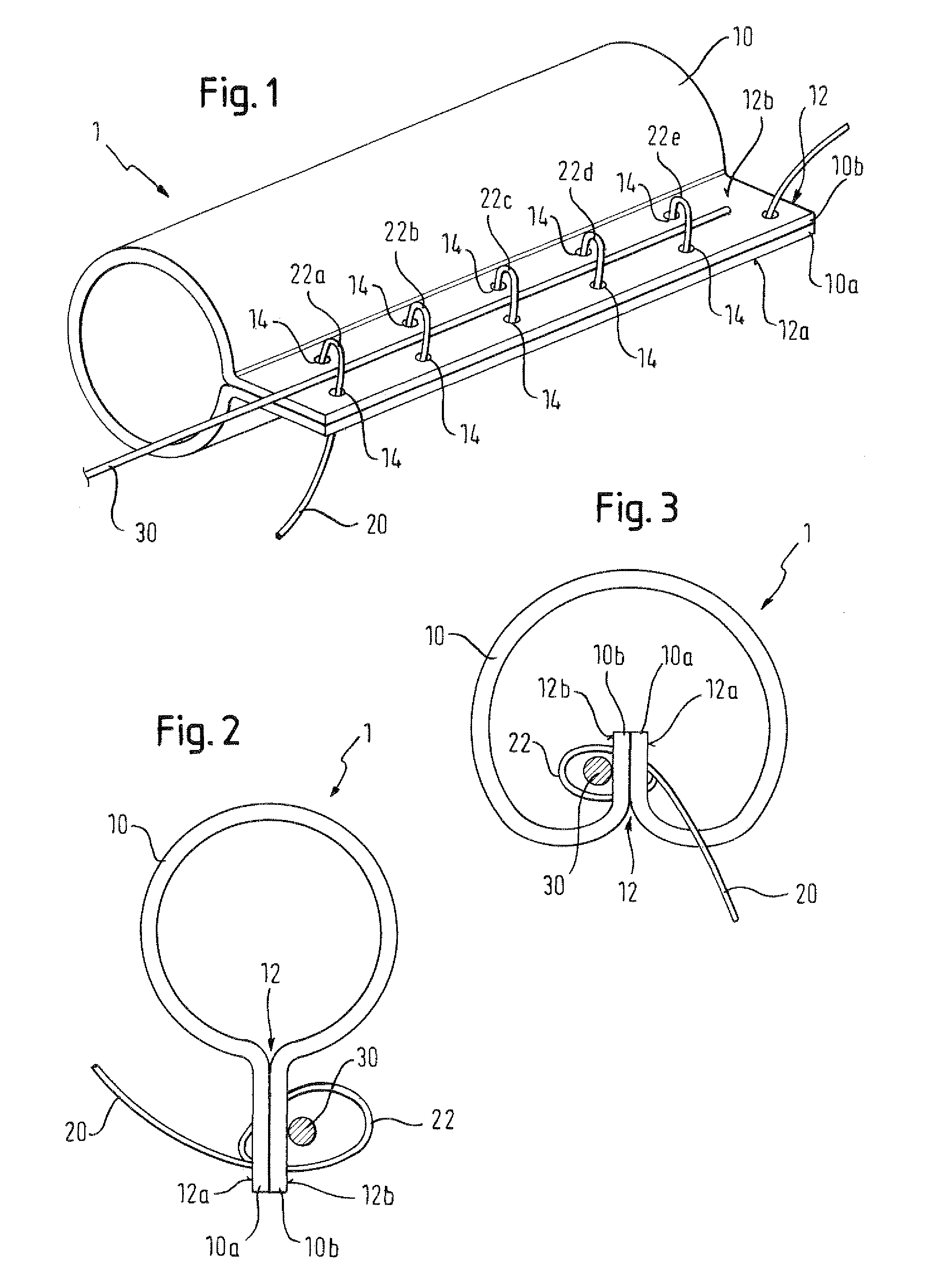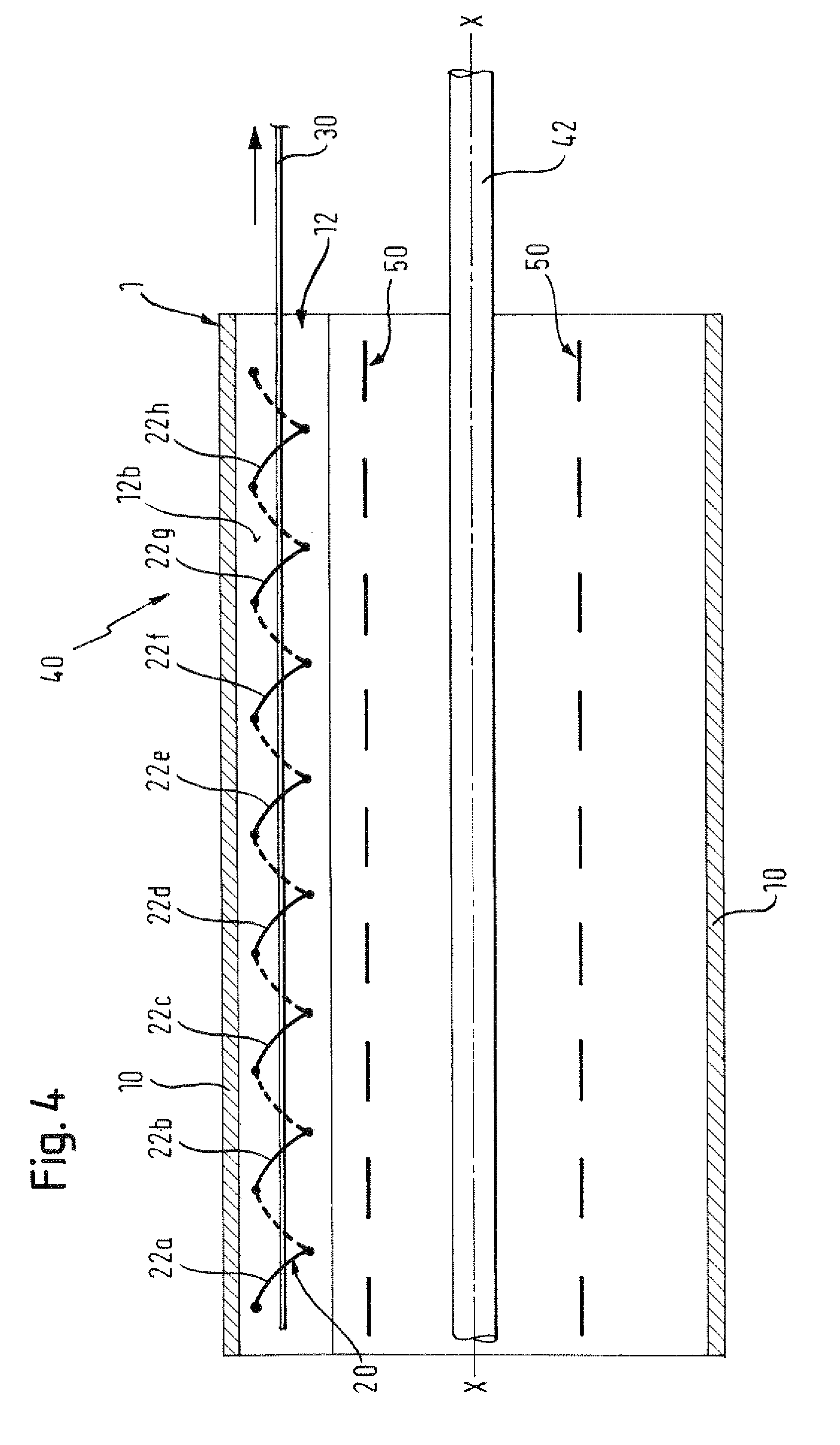Catheter sheath for implant delivery
a catheter and catheter technology, applied in the field of material tubes, can solve the problems of breaking or being at risk of breaking under such applied forces, and achieve the effects of low curvature deflection, high curvature deflection, and large radius
- Summary
- Abstract
- Description
- Claims
- Application Information
AI Technical Summary
Benefits of technology
Problems solved by technology
Method used
Image
Examples
Embodiment Construction
[0056]Specific embodiments of the present invention will now be described, with reference to the illustrated examples shown in the accompanying drawings. Reference to the drawings is made for illustrative purposes, and should not to be taken to be limiting of the scope of the claims.
[0057]In general, embodiments of a tube of material are formed by folding a sheet of the material so as to bring two edges of the material together to form a seam. Alternatively, a larger-diameter tube of the material may be pressed together to bring two portions of its internal surface together along its length, thereby forming a smaller-diameter tube with edges in a seam. The material from which the tube is made can be any suitable biocompatible material, as is well known to the person skilled in the art for such applications, including ePTFE, polyethers such as polyterephthalate (DACRON® or MYLAR®), or polyaramids such as KEVLAR®. Any other suitable polymer, fabric or a foil of metallic material may b...
PUM
 Login to View More
Login to View More Abstract
Description
Claims
Application Information
 Login to View More
Login to View More - R&D
- Intellectual Property
- Life Sciences
- Materials
- Tech Scout
- Unparalleled Data Quality
- Higher Quality Content
- 60% Fewer Hallucinations
Browse by: Latest US Patents, China's latest patents, Technical Efficacy Thesaurus, Application Domain, Technology Topic, Popular Technical Reports.
© 2025 PatSnap. All rights reserved.Legal|Privacy policy|Modern Slavery Act Transparency Statement|Sitemap|About US| Contact US: help@patsnap.com



